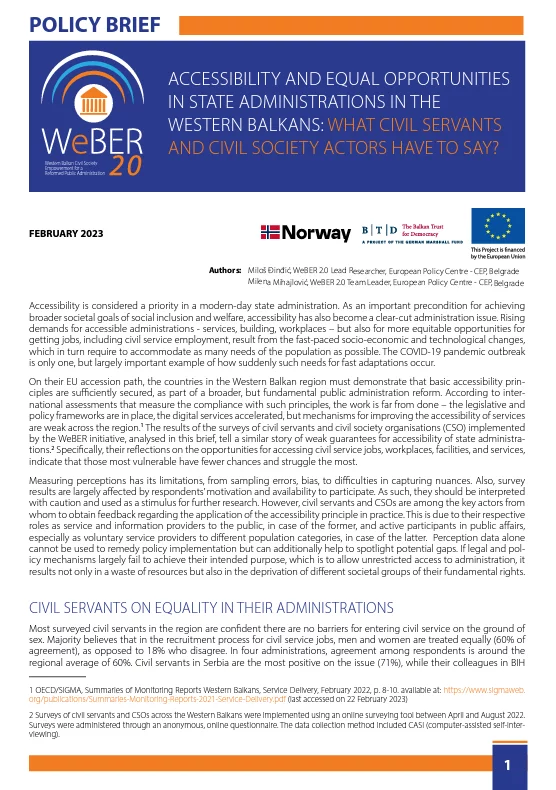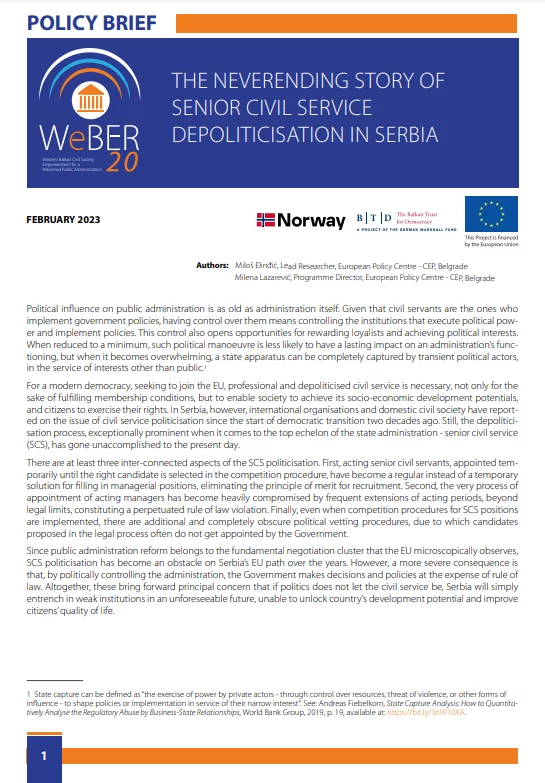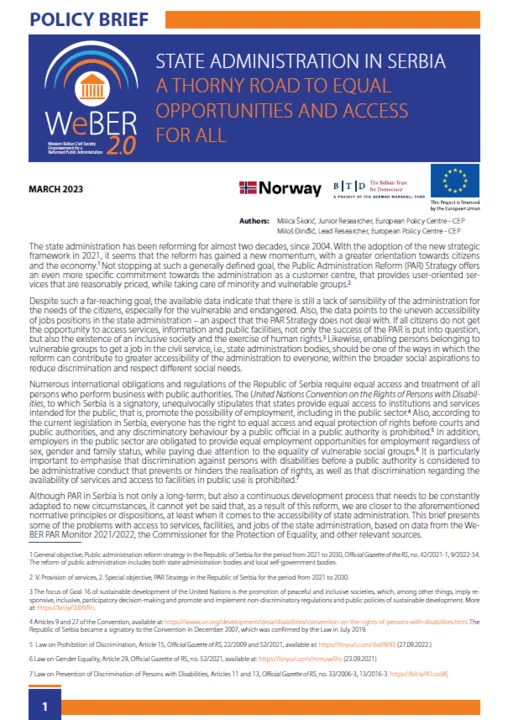CSO PAR Knowledge Centre
Here you can access the regional database of reports and analyses of civil society organisations from Western Balkan countries for different areas of public administration reform.
Deep search – Look for terms inside files
Accessibility and Equal Opportunities in State Administrations in the WB: What Civil Servants and Civil Society Actors Have to Say?

Rising demands for accessible administrations – services, building, workplaces – but also for more equitable opportunities for getting jobs, including civil service employment, result from the fast-paced socio-economic and technological changes, which in turn require to accommodate as many needs of the population as possible. The COVID-19 pandemic outbreak is only one, but largely important example of how suddenly such needs for fast adaptations occur.
The Neverending story of senior civil service depoliticisation in Serbia

For a modern democracy, seeking to join the EU, professional and depoliticised civil service is necessary, not only for the sake of fulfilling membership conditions, but to enable society to achieve its socio-economic development potentials, and citizens to exercise their rights. In Serbia, however, international organisations and domestic civil society have reported on the issue of civil service politicisation since the start of democratic transition two decades ago. Still, the depoliticisation process, exceptionally prominent when it comes to the top echelon of the state administration senior civil service (SCS), has gone unaccomplished to the present day.
State administration in Serbia: A thorny road to equal opportunities and access for all

Despite such a far-reaching goal, the available data indicate that there is still a lack of sensibility of the administration for the needs of the citizens, especially for the vulnerable and endangered. Also, the data points to the uneven accessibility of jobs positions in the state administration – an aspect that the PAR Strategy does not deal with. If all citizens do not get the opportunity to access services, information and public facilities, not only the success of the PAR is put into question, but also the existence of an inclusive society and the exercise of human rights. Likewise, enabling persons belonging to vulnerable groups to get a job in the civil service, i.e., state administration bodies, should be one of the ways in which the reform can contribute to greater accessibility of the administration to everyone, within the broader social aspirations to reduce discrimination and respect different social needs.
Openness of Executive Power Institutions in the Region and Montenegro
 The policy of openness must be the policy of all governments in the region and it must be defined as other important policies. It shouldn’t be a result of a current decision or of a current mood of power.
The policy of openness must be the policy of all governments in the region and it must be defined as other important policies. It shouldn’t be a result of a current decision or of a current mood of power.
This proposal is addressed to decision-makers of executive power in the regional countries on all levels: Government, ministries and executive agencies. It can be useful for representatives of international institutions and for NGO colleagues, who tackle with these issues.




